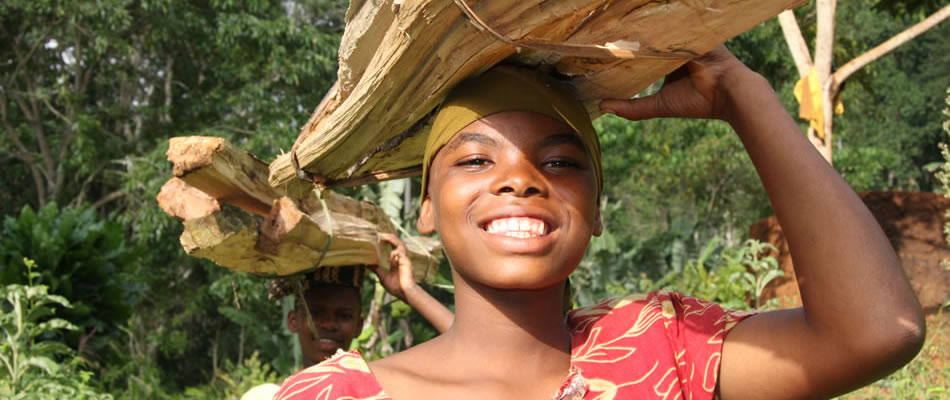Integrated Forest and Biomass Energy Solutions for Tanzania (IFBEST) Project
The Integrated Forest and Biomass Energy Solutions for Tanzania (IFBEST) project aims to conserve the unique and threatened biodiversity of the Eastern Arc Mountains and Coastal Forests by establishing eight new protected areas and improving the management of four national forest reserves, and Saadani National Park.

OverviewThe IFBEST project aims to reduce deforestation around the Nguu Mountain forests, a part of the Eastern Arc Mountains, and around the Gendagenda Coastal Forest. The forests provide habitat for at least ten Endangered and Vulnerable species. Agriculture-driven deforestation around these high-biodiversity forests threatens the unique biodiversity inside the areas’ forest reserves, and their buffer zones. Overall objectiveEnvironmental sustainability is enhanced through sustainable forest management and wood-fuel production in Tanga Region. Project outcomeLocal communities, LGAs and other stakeholders have increased capacity to engage in sustainable forest management and wood-fuel value chains in four districts of Tanga Region. Based on TFCG’s pioneering work in integrating sustainable charcoal production with community-based forest management in Morogoro Region, TFCG will scale-up the model to 13 villages in Tanga Region. Background to the IFBEST ProjectTanzania is experiencing accelerating loss of its forest cover, with the mean annual deforestation rate increasing from 1% between 1991 and 2000, to 1.47% between 2002 and 2013. 47% of the remaining forests are found on village land, where their sustainable management is crucial for maintaining national tree cover. While the main threat to Tanzania’s forests comes from the expansion of agriculture, high demand for wood fuel places significant additional pressures. In 2020, national charcoal production was estimated at 1.9 million tonnes with a Gross Value Added of TZS 2.1 trillion, contributing about 44% of forest sector GDP. Charcoal revenue supports the livelihoods of hundreds of thousands of suppliers, transporters and traders. Charcoal is also the leading source of cooking energy in urban areas, being affordable and widely available. But if production is unsustainable, this high demand results in forest degradation and loss of biodiversity, and negatively impacts communities who rely on forests for fuel, other forest products and ecosystem services. In-line with that, IFBEST project aims to enhance environmental sustainability through sustainable forest management and woodfuel production. |
Project approachThe project will achieve its overall goal by building the capacity and commitment of local communities, LGAs and other stakeholders to engage in sustainable forest management and wood-fuel value chains. Communities will be empowered to manage and benefit from the forests on their village land and will gain a variety of economic and social benefits from the sustainable management of these forests, including employment, royalty revenues (for forest management and community development investments), technical skills and a rebalancing of power structures in commercial wood-fuel value chains and forest governance frameworks. The project includes a research component that will document innovative techniques around natural forest regeneration and sustainable charcoal production and will build national capacity by involving the Tanzania Forestry Research Institute (TAFORI) in monitoring. Project locationThe project is active in 13 villages and 4 Districts (Handeni, Kilindi, Pangani and Mkinga) in Tanga region. Project DurationDecember 2023 – November 2026. FundingThe project is financed by European Union with co-funding from the African Rainforest Conservancy and the African Rainforest Trust. Implementing PartnersThe integrated Forest and Biomass Energy Solutions for Tanzania Project is a partnership between the Tanzania Forest Conservation Group (TFCG) and the Community Forest Conservation Network of Tanzania (MJUMITA). The project works closely with Tanga Regional Administration and the Handeni, Kilindi, Pangani and Mkinga District Councils. Reports and technical papers Ewald, E et al., 2024. Tanga Region charcoal value chain survey, 2024. TFCG Technical Paper 53. Ewald E and S. Lugazo, 2024. Tanga Region charcoal value chain survey, 2024. Research Summary. English Ewald E and S. Lugazo, 2024. Muhtasari wa matokeo muhimu ya utafiti wa mnyororo wa thamani ya mkaa mkoani, Tanga, Tanzania, 2024. Research Summary. TFCG, 2025. IFBEST project baseline monitoring report. Related publications TFCG, 2020. Sustainable charcoal and beyond. Ensuring sustainable charcoal production and use as Tanzania transitions to cleaner fuels. TFCG Technical Report 47. United Republic of Tanzania, Ministry of Natural Resources and Tourism 2022. The National Community Based Forest Management (CBFM) Action Plan (2021 – 2031) United Republic of Tanzania, Ministry of Natural Resources and Tourism 2022. The National Charcoal Strategy and Action Plan (2021 – 2031) TFCG 2022. Policy brief. Evidence of the negative impact of regulatory changes, including GN 417, on community-based forest management, with recommendation for enhancing CBFM’s contribution to the national economy. TFCG 2016. A review of policy instruments relevant to the integration of sustainable charcoal production in community based forest management in Tanzania. TTCS Technical Report 5. 1.2 MB |

